New Scientist covers the latest developments in science and technology that will impact your world. New Scientist employs and commissions the best writers in their fields from all over the world. Our editorial team provide cutting-edge news, award-winning features and reports, written in concise and clear language that puts discoveries and advances in the context of everyday life today and in the future.
Elsewhere on New Scientist
Smokescreen • Blaming young people’s problems on smartphones is easy – but is it true?
New Scientist
On the hunt for young stars
Analysis Dementia • Could you get Alzheimer’s disease from a bone marrow transplant? A study in mice adds to hints that this condition could be passed on, but we are a long way from saying the risk applies to people, says Clare Wilson
Heatwaves now last much longer than they did in the 1980s
Artemis astronauts will try to grow plants on the moon
Our black hole’s magnetic swirls • New view of the black hole at the heart of the Milky Way reveals its curling magnetic fields
Ancient symbols carved near dinosaur footprints
Some bamboo toilet paper contains hardly any bamboo
Bitter divisions over controversial maths proof
Saharan dust descends on Europe • Drought and changes in wind patterns seem to be boosting the spread of desert dust
Robot predicts when you’re going to smile and smiles first
Field notes Kathmandu, Nepal • On the trail of the world’s most valuable fungus Prized in traditional medicine, the harvesting of yartsa gunbu is big business – with an ecological impact to match, finds Adam Popescu
Unexploded old bombs are getting more dangerous
AI forecaster can predict the future better than humans
Immune systems made young again • Antibody therapy rejuvenates defence network in old mice, helping them fend off infection
Mars may have captured a comet to create its two moons
Huge crater in India hints at major meteorite impact 4000 years ago
Atomic clock can tick for 40 billion years without losing time
A lack of sleep makes you feel old
Implanted battery is charged by the body
Japanese tits gesture to let their mates enter nest first
Really brief
A longevity revolution • With global life expectancy now exceeding 70 years old, we need to change how we age, not how long we age, says Andrew Scott
Field notes from space-time • Star-gazing for beginners As a particle astrophysicist, you’d think I would know what I’m doing when it comes to looking at the sky. I don’t, but I’m learning, says Chanda Prescod-Weinstein
Green glow up
The music of time • A new book promises to deliver the complete archaeological history of music for the first time. Arwa Haider listens in
Behind the algorithm • AI is already challenging our work and lives. A must-read book explores the human impact, finds Chris Stokel-Walker
New Scientist recommends
The games column • Saving the world Final Fantasy VII Rebirth is the latest in an expanded remake of a classic eco-conscious game from 1997. In addition to gorgeous new graphics, the game’s ideas now resonate even more strongly, says Jacob Aron
Your letters
ANXIETY
Island bounty • It is one of the most isolated places in the world, but Pitcairn Island (population 47) has much to teach us about how to protect ocean biodiversity, discovers Graham Lawton
Turning orange • A dash of science makes it easy to bake a delicious vegan version of carrot cake, says Karmela Padavic-Callaghan
Puzzles
Almost the last word
Tom Gauld for New Scientist
Feedback
Twisteddoodles for New Scientist

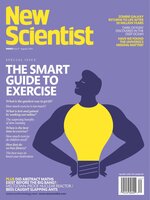 Jul 27 2024
Jul 27 2024
 Jul 20 2024
Jul 20 2024
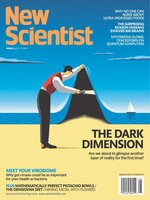 Jul 13 2024
Jul 13 2024
 Jul 06 2024
Jul 06 2024
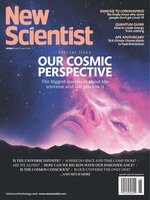 Jun 29 2024
Jun 29 2024
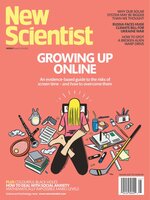 Jun 22 2024
Jun 22 2024
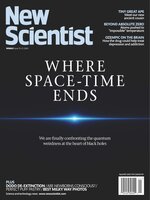 Jun 15 2024
Jun 15 2024
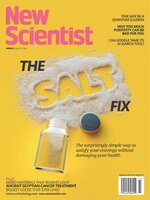 Jun 08 2024
Jun 08 2024
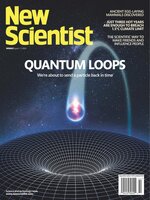 Jun 01 2024
Jun 01 2024
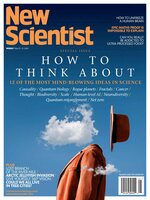 May 25 2024
May 25 2024
 May 18 2024
May 18 2024
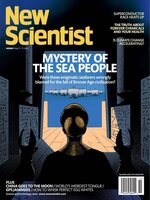 May 11 2024
May 11 2024
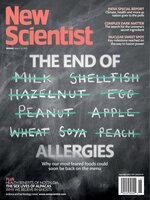 May 04 2024
May 04 2024
 Apr 27 2024
Apr 27 2024
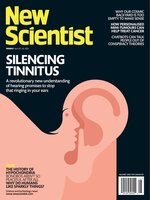 Apr 20 2024
Apr 20 2024
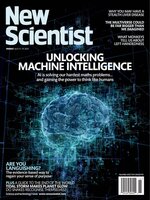 Apr 13 2024
Apr 13 2024
 Apr 06 2024
Apr 06 2024
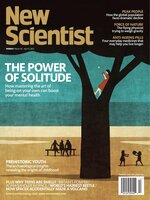 Mar 30 2024
Mar 30 2024
 Mar 23 2024
Mar 23 2024
 Mar 16 2024
Mar 16 2024
 Mar 09 2024
Mar 09 2024
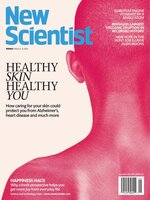 Mar 02 2024
Mar 02 2024
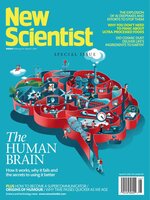 Feb 24 2024
Feb 24 2024
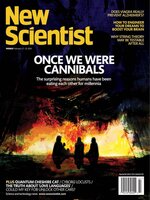 Feb 17 2024
Feb 17 2024
